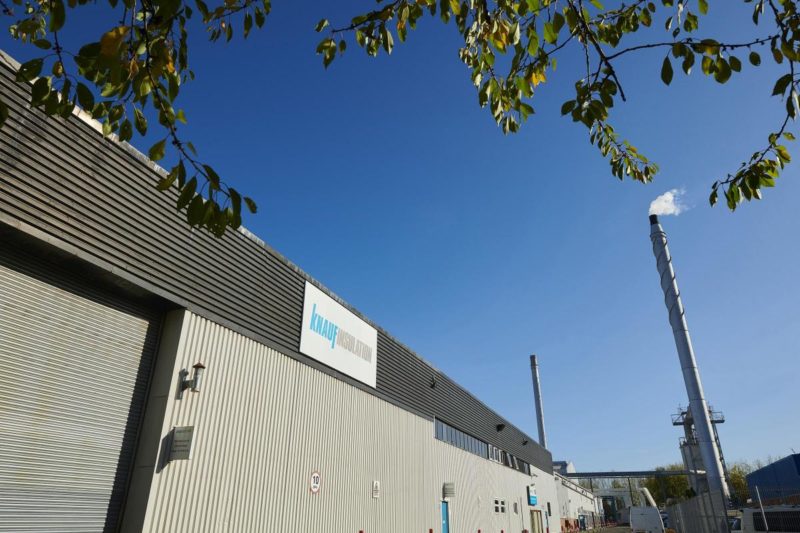
With net zero carbon targets to reach by 2040, St Helens Borough Council has praised a borough-based business for a £40m investment which will build on its industry-leading position in sustainability and provide a significant boost to the local economy.
The UK’s leading provider of high performance, sustainable Glass and Rock Mineral Wool insulation solutions, Knauf Insulation recently announced an investment totalling more than £40m to increase the plant’s total capacity by c30,000 tonnes per annum from late 2023/early 2024. The company, which is based on Stafford Road in St Helens, has also announced its intention to acquire the former Alexandra Works Pilkington Architectural site from NSG Group.
This major investment in St Helens includes:
- A larger furnace to support the increased capacity
- Improved innovation and technology to support a significant widening of the product range and packaging techniques
As a result of the investment, Knauf Insulation expects to see a circa 20% improvement in the embodied carbon of products supplied from its St Helens plant, building further on its industry-leading position in terms of sustainability. This will also help St Helens Borough achieve its ambition to decarbonise industry.
To support the growth in output, the company has also agreed a deal in principle to acquire the adjacent Pilkington Architectural site from NSG Group for a multi-million-pound sum, subject to contract, environmental and structural surveys. The site covers around seven hectares in total and includes industrial buildings with a total floor space in excess of 180,000 sq ft. This significant acquisition will allow for additional warehouse and storage space and a fully optimised logistics operation on the enlarged site.
Knauf Insulation is also investing more than £5m in packaging equipment at its second Glass Mineral manufacturing plant in Cwmbran, South Wales. This will enable the company to optimise its UK manufacturing and logistics footprint, improve availability to customers and take up to 1.5 million truck miles per annum off the road.
Labour’s David Baines, Leader of St Helens Borough Council, says: “This investment is fantastic news for the local economy and our environmental targets too.
As a Labour council we’re serious about addressing climate change and supporting businesses and organisations to reduce emissions. We’re taking firm action such as setting up a Climate Commission and a Youth Climate Commission, leading the way at COP26 and in the City Region, and providing a £120,000 funding pot which has helped a number of local organisations make positive changes towards a greener way of operating. And of course we’re supporting large projects such as HyNet, Mersey Tidal, and Glass Futures.
This commitment from Knauf Insulation will further support our journey to net zero.”
Lisa Harris, St Helens Borough Council’s Executive Director for Place Services, said: “As one of the fastest growing and most respected names in insulation worldwide, we’re proud to have businesses like Knauf Insulation here in St Helens, a place it has called home for many years and who we have struck up a good working relationship with. An investment of this scale is a testament to the workforce and I’m sure the employees of Knauf Insulation in St Helens are extremely proud of their contributions.
“Not only is this latest multi-million-pound investment good news from an economic perspective, with inward investment, expected job creation and security, and the repurposing of the vacant Pilkington site which recently closed – but it will make a significant contribution to the borough’s green recovery through carbon reduction, which will help the council achieve its goal of reaching net zero by 2040.
Neil Hargreaves, Managing Director of Knauf Insulation Northern Europe, added: “This is an exciting development for our business and both our UK Glass Mineral Wool plants. These investments support the anticipated growth in demand driven by the Future Homes Standard and improved energy efficiency in new buildings as well as from more renovation of existing buildings. These developments are critical as we step up our efforts to tackle the cost-of-living crisis, climate change and energy security.”
